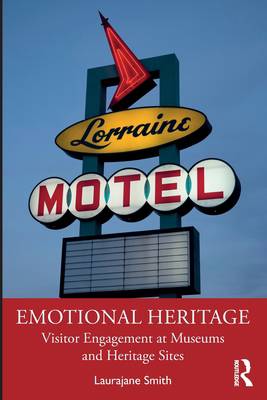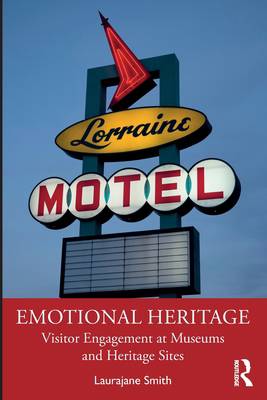
- Afhalen na 1 uur in een winkel met voorraad
- Gratis thuislevering in België vanaf € 30
- Ruim aanbod met 7 miljoen producten
- Afhalen na 1 uur in een winkel met voorraad
- Gratis thuislevering in België vanaf € 30
- Ruim aanbod met 7 miljoen producten
Omschrijving
Emotional Heritage brings the issues of affect and power in the theorisation of heritage to the fore, whilst also highlighting the affective and political consequences of heritage-making.
Drawing on interviews with visitors to museums and heritage sites in the United States, Australia and England, Smith argues that obtaining insights into how visitors use such sites enables us to understand the impact and consequences of professional heritage and museological practices. The concept of registers of engagement is introduced to assess variations in how visitors use museums and sites that address national or dissonant histories and the political consequences of their use. Visitors are revealed as agents in the roles cultural institutions play in maintaining or challenging the political and social status quo. Heritage is, Smith argues, about people and their social situatedness and the meaning they, alongside or in concert with cultural institutions, make and mobilise to help them address social problems and expressions of identity and sense of place in and for the present.
Academics, students and practitioners interested in theories of power and affect in museums and heritage sites will find Emotional Heritage to be an invaluable resource. Helping professionals to understand the potential impact of their practice, the book also provides insights into the role visitors play in the interplay between heritage and politics.
Specificaties
Betrokkenen
- Auteur(s):
- Uitgeverij:
Inhoud
- Aantal bladzijden:
- 352
- Taal:
- Engels
Eigenschappen
- Productcode (EAN):
- 9781138888654
- Verschijningsdatum:
- 21/07/2020
- Uitvoering:
- Paperback
- Formaat:
- Trade paperback (VS)
- Afmetingen:
- 155 mm x 234 mm
- Gewicht:
- 498 g

Alleen bij Standaard Boekhandel
Beoordelingen
We publiceren alleen reviews die voldoen aan de voorwaarden voor reviews. Bekijk onze voorwaarden voor reviews.











